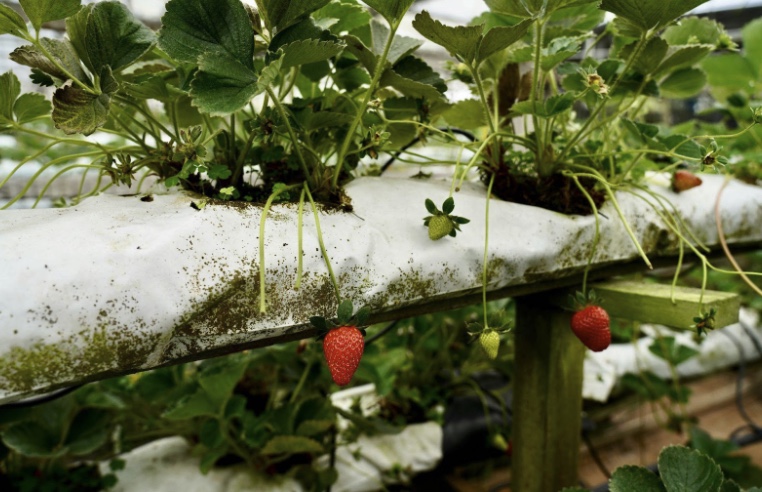How Climate Change Is Shaping Modern Home Gardening Trends for Resilience and Sustainability

As we embrace the beauty of home gardening, it’s impossible to ignore the profound impact climate change has on our green spaces. Rising temperatures, unpredictable weather patterns, and shifting growing seasons are transforming how we cultivate our gardens. We’re not just planting seeds; we’re adapting to a new reality that demands creativity and resilience.
In this article, we’ll explore how climate change is reshaping modern gardening trends. From selecting climate-resilient plants to implementing sustainable practices, we’ll uncover how we can thrive in our gardens despite the challenges. Join us as we dig into innovative strategies that not only help our plants flourish but also contribute to a healthier planet.
Understanding Climate Change and Its Impact
Climate change significantly alters our environment, affecting home gardening practices. Rising temperatures and erratic weather patterns challenge traditional gardening methods, pushing us to adapt.
Definition of Climate Change
Climate change refers to long-term alterations in temperature and weather patterns, primarily driven by human activities. Increased greenhouse gas emissions from industrial processes and agriculture, including the use of pre-emergent fertilizers, contribute to this phenomenon. These changes lead to more extreme weather events, such as droughts and heavy rainfall, transforming how we approach gardening.
Effects on Local Weather Patterns
Climate change affects local weather patterns through increased variability. We experience shorter growing seasons, more intense heatwaves, and unpredictable rainfall. Such conditions can jeopardize the health of crops like the garden strawberry plant. For example, droughts necessitate more water-efficient practices, while sudden frost can damage sensitive plants. Adapting to these changing conditions requires us to rethink plant selections and gardening strategies, focusing on resilience and sustainability.
Modern Home Gardening Trends
Modern home gardening adapts to the realities of climate change through sustainable practices and plant selections that enhance resilience. We embrace techniques that not only benefit our gardens but also support the environment.
Sustainable Gardening Practices
We implement sustainable gardening practices that reduce our environmental footprint. Using organic fertilizers, such as pre emergent fertilizer, minimizes chemical runoff and promotes soil health. Incorporating compost, integrated pest management, and water conservation techniques, like rainwater harvesting, contributes to more efficient resource use. Our gardens now rely on crop rotation and companion planting to enhance biodiversity and resilience against pests and diseases.
Native Plant Choices
We prioritize native plant choices that thrive in our local climates with minimal maintenance. These plants often require less water and are more resistant to local pests, making them ideal for changing weather patterns. Utilizing native species helps maintain local ecosystems and promotes biodiversity. For example, incorporating a garden strawberry plant not only supports pollinators but also rewards us with a delicious harvest, reflecting a thoughtful approach to sustainable gardening.
Adapting to Climate Change in Gardening

We face significant challenges in gardening due to climate change, requiring innovative strategies to sustain our gardens. Water conservation and soil health play crucial roles in adapting our practices.
Water Conservation Techniques
We incorporate various water conservation techniques to manage reduced rainfall and rising temperatures. Installing rain barrels captures rainwater for irrigation, while drip irrigation minimizes water loss. Mulching around plants retains moisture and suppresses weeds. Adjusting plant placement also aids in water conservation by grouping plants with similar needs together. Dedicating spaces for drought-resistant plants helps reduce overall water usage. Implementing these strategies not only protects our resources but enhances garden sustainability.
Soil Health and Amendments
We prioritize soil health through the use of organic amendments and proactive practices. Integrating compost boosts microbial activity and improves soil structure, ensuring nutrient availability. Applying pre-emergent fertilizer prevents weed competition while promoting healthy growth for our crops. Testing soil pH helps us determine necessary amendments for optimal plant health. Adding native plants further enriches biodiversity and enhances soil resilience. These actions cultivate a thriving ecosystem crucial for enduring climate shifts.
Technological Innovations in Gardening
Innovations in gardening technology significantly support our adaptation to climate change. Tools and resources now exist to enhance efficiency and sustainability in home gardening practices.
Smart Gardening Tools
Smart gardening tools offer solutions for managing water usage and improving plant health. Automated irrigation systems adjust watering schedules based on real-time weather data, reducing waste and ensuring optimal hydration. Soil sensors monitor moisture levels and nutrient availability, providing precise information for effective planting. Integrated apps help us track garden progress, reminding us when to plant climate-resilient varieties suitable for local conditions.
Climate-Responsive Planting Schedules
Climate-responsive planting schedules align our gardening activities with shifting weather patterns. Using data from local climate models, we adjust planting dates to avoid frost and establish optimal growing periods. This proactive approach helps maximize yields despite shorter growing seasons. Employing pre-emergent fertilizers ensures seedlings receive necessary nutrients at crucial stages, promoting strong growth in unpredictable climates. Additionally, this strategy supports the overall resilience of our gardens as environmental conditions become increasingly variable.
Community and Educational Initiatives
Community and educational initiatives play a vital role in fostering climate-resilient gardening practices. Through shared knowledge and collective action, we strengthen local gardening efforts.
Gardening Workshops and Resources
Gardening workshops provide hands-on experiences that educate participants about climate adaptation strategies. We can learn about selecting appropriate plants that thrive in shifting climates. Resources often include information on soil health and the use of pre-emergent fertilizers, which enhance plant growth and resilience. Local organizations frequently host classes that cover sustainable practices, such as water conservation and organic gardening methods, to better equip us for climate challenges. Engaging in these workshops cultivates a knowledgeable gardening community.
Local Gardening Groups and Networks
Local gardening groups create supportive environments for sharing experiences and best practices. We can connect with fellow gardeners who face similar climate issues, exchanging insights on effective strategies. These networks often organize events that promote the use of native plants, fostering biodiversity and sustainability. Additionally, members may collectively advocate for community gardens that focus on climate-resilient crops. By participating in these groups, we reinforce our commitment to adaptive practices and encourage each other to explore creative gardening solutions. For a deeper dive into the science behind these changes, check out the EPA’s Climate Change and Agriculture resources.
Spotted something? Got a story? Send a Facebook Message | A direct message on Twitter | Email: [email protected] Latest News









